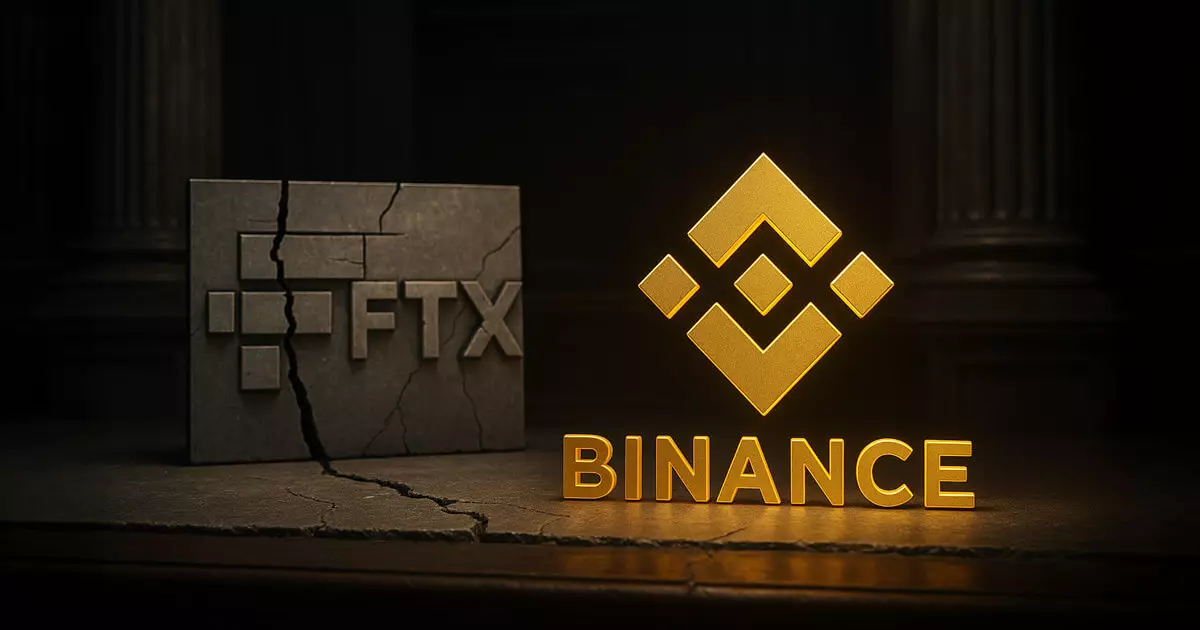When it comes to legal battles in the cryptocurrency sector, jurisdiction often plays a pivotal role, and Binance is using this to its advantage in its response to FTX’s $1.76 billion lawsuit. The exchange asserts that U.S. courts simply do not have the authority over the foreign entities involved in this case. The implication here is profound: Binance isn’t just defending itself; it’s challenging the overarching premise that a U.S. court could govern disputes involving parties that have no direct ties to American jurisdiction. This is particularly salient given the international nature of cryptocurrency transactions, where boundaries blur and jurisdictions become contentious.
What Binance’s legal team is emphasizing is not a mere technicality but a call for a rational understanding of where financial transactions should be adjudicated. By citing the governance of Hong Kong law over the disputed agreements, Binance is insulating itself from what it sees as illegitimate claims made by FTX. If the defendants have no reasonable expectation of jurisdiction in the U.S., then one must ask: why should the court entertain this lawsuit at all?
Debunking Insolvency Claims
FTX’s contention that Binance played a direct role in its financial downfall hinges on the assertion of insolvency. However, Binance’s filings paint a very different picture. The firm argues that, even if there were claims of insolvency, the timeline and the context do not support FTX’s narrative. They argue that FTX was not insolvent during the transactions at the heart of the dispute; hence, how could any value be ‘destroyed’ later on? This line of reasoning questions the very foundation of FTX’s case and challenges the legal robustness of its claims.
Moreover, Binance’s assertion that FTX’s collapse was the result of an unprecedented corporate fraud diverts focus from its own alleged culpability to the failures within FTX itself. In an age where financial mismanagement is often cloaked in complex narratives, Binance’s insistence on framing the issue accurately shows a strategic effort to shift possibly damaging perceptions.
A Clarification on Market Behavior and Communication
One of the more sensational allegations against Binance is that CEO Changpeng Zhao instigated a bank run through social media. However, the exchange dismisses this as an exaggerated interpretation of his communications. By emphasizing that Zhao’s social media posts were grounded in factual accuracy and that they did not mislead investors, Binance strategically distances itself from the ensuing chaos at FTX. This narrative reinforces the idea that Zhao’s actions were not malicious but reactive, grounded in the real-time evaluation of market risks.
In the high-volatility environment of cryptocurrency, even minor remarks can create significant ripples. Binance’s clarification on this matter underscores the need for prudent communication, especially in sectors where misinformation can spiral out of control.
Market Dynamics, Not Personal Vendettas
Binance’s defense highlights an important notion: the decision to liquidate its FTT holdings was a prudent market response driven by risk analysis rather than a vendetta against FTX. In an environment teeming with speculation, risk management strategies often dictate actions rather than personal agendas. The idea that Binance sought to harm FTX diminishes in light of its own economic pressures and market realities.
This distinction is crucial in understanding the relationship between these two titans of cryptocurrency. Binance’s stance propounds that it was operating within the confining parameters of market dynamics, framing itself as a reluctant participant rather than an aggressor. Through this lens, the narrative shifts away from one of predation to one of survival and careful navigation in turbulent waters.
While the lawsuit from FTX presents allegations that could rattle the cryptocurrency ecosystem, Binance’s multi-faceted defense offers a compelling rebuttal, challenging the legal and financial foundations of the claims pressed against it.

